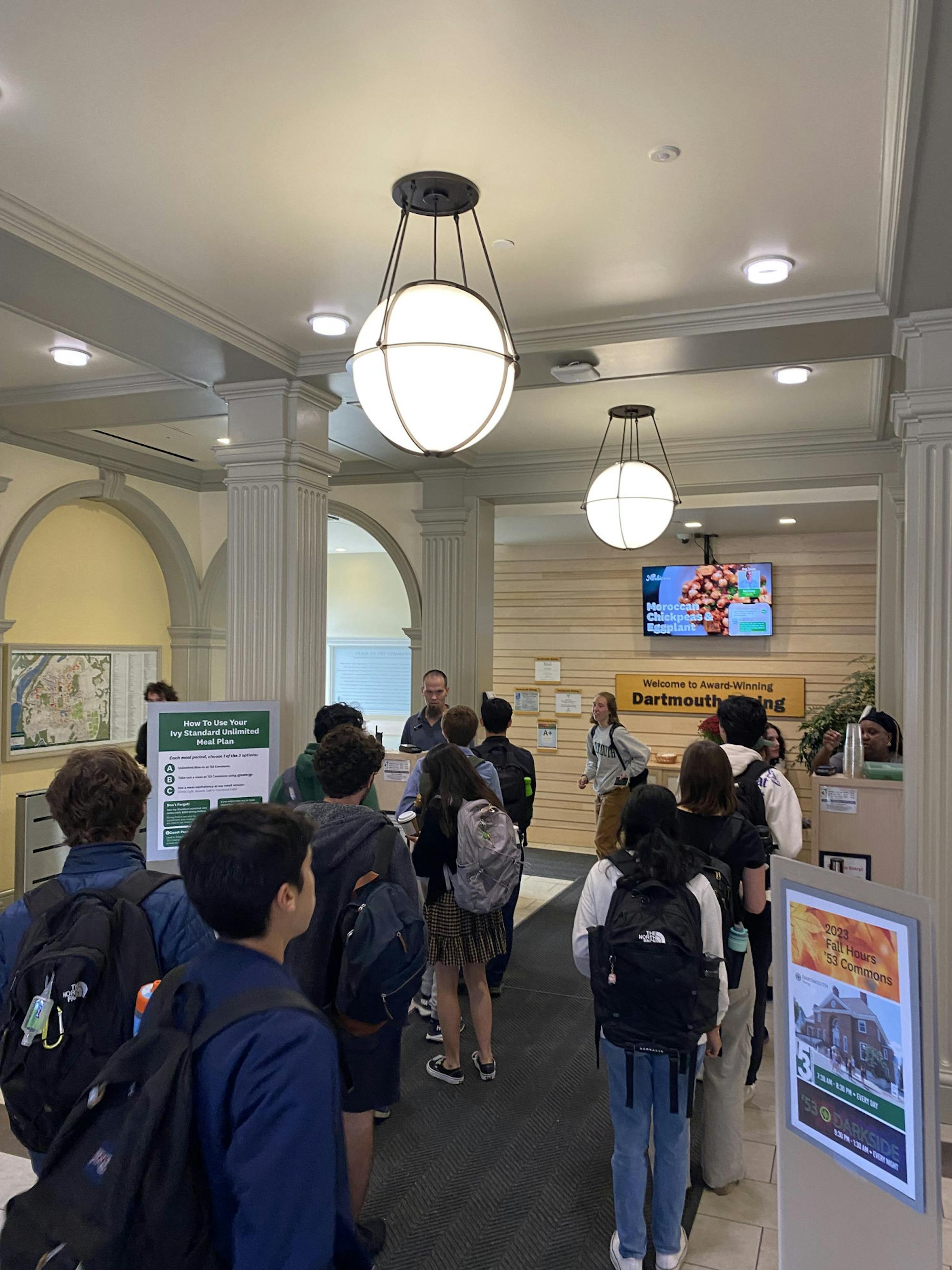Dartmouth Dining enacted policy changes at the beginning of fall term, restricting Green2Go at the Class of 1953 Commons and adjusting snack bar rules, according to Dartmouth Dining director Jon Plodzik. To get Green2Go at ’53 Commons, students must now give their Dartmouth IDs to reception staff and collect their food in under 15 minutes. In addition, snack bars no longer accept meal swipes — returning to the model last winter.
According to Plodzik, the Green2Go time limit was in effect pre-COVID and was reinstituted in an effort to prevent students from taking excess food. While the new rule is intended to keep students from “taking advantage of loopholes in the program,” the dining staff worked with Student Accessibility Services to establish exceptions for those who may not be able to make the 15 minute limit, Plodzik said.
“We don’t have unlimited resources,” Plodzik said. “Anytime people take six bananas out of here with them, it takes away a banana that somebody else might have, or most likely it causes me to buy five extra bananas that I didn’t really anticipate buying.”
Anika Larson ’26 described the Green2Go policy changes as “somewhat frustrating.” She cited the occasionally long stir-fry line as a potential problem when trying to meet the 15 minute limit.
Being on the “unlimited” meal plan — which is required for all first-year students and encourages dining at ’53 Commons — might make these changes especially annoying, according to Larson.
“Last year, [this change] definitely would have [impacted me] because that was how I used my late night swipe,” Larson said. “I was half a mile from Foco, so I wouldn’t walk there at 11 p.m.“If I wanted a snack, I was just going to walk 200 feet to the snack bar.”
Students who eat a meal and simultaneously take more food when using Green2Go can change the allocation of the dining system’s budget, which Plodzik described as impacting Dartmouth Dining’s capacity to hold events.
Plodzik explained the change in snack bar policies was implemented in order to focus attention on the ’53 Late Night program introduced in January. Plodzik said he hopes the change will bring more students to ’53 Commons and make Late Night a place the community can gather.
“I know some students aren’t going to be thrilled that they can’t use their meal swipe in the snack bars, but they need to realize how much energy we put into Late Night,” he said. “We’re trying to create connections.”
Larson said she thinks students might continue to take advantage of the dining system and “ are just [going to] get sneakier.”
Isabelle Cheney ’24 said she doesn’t frequent late night snack bars and has not felt the influence of the policy change. However, like Larson, she noticed more regulation of Green2Go.
“[Dartmouth Dining has been] a little more strict about what you can have on top of your [Green2Go box], and sometimes they tell you to put things back,” she said. “I think getting enough food to fuel yourself is most important. I wish that was more of the focus and less like making sure you’re out in a certain amount of time, and that you don’t have more than what [Dartmouth Dining] deems necessary.”
Though she “doesn’t feel super strongly overall,” Cheney said she wishes it was a more “stress-free” process.
According to Plodzik, Dartmouth Dining reached out to Dartmouth Student Government for input on these new policies.
Student body president Jessica Chiriboga ’24 wrote in an email statement that DSG “will share more updates with the student body in the coming weeks.”
“Dartmouth Student Government is listening to student concerns about dining prices and policies,” Chiriboga wrote. “We are committed to addressing student dining needs with Dartmouth Dining in a timely manner. We will share more updates with the student body in the coming weeks.”
Plodzik also encouraged students to reach out with any concerns.
“I want people to know that I’m here to serve them,” he said.
Senior manager of operational excellence Deb Scanlon emphasized this focus on student feedback.
“We want to make the program the best that it can be,” she said. “Dining is part of the total experience; you can’t learn if you’re not nourished properly. We’re here for all of you.”




